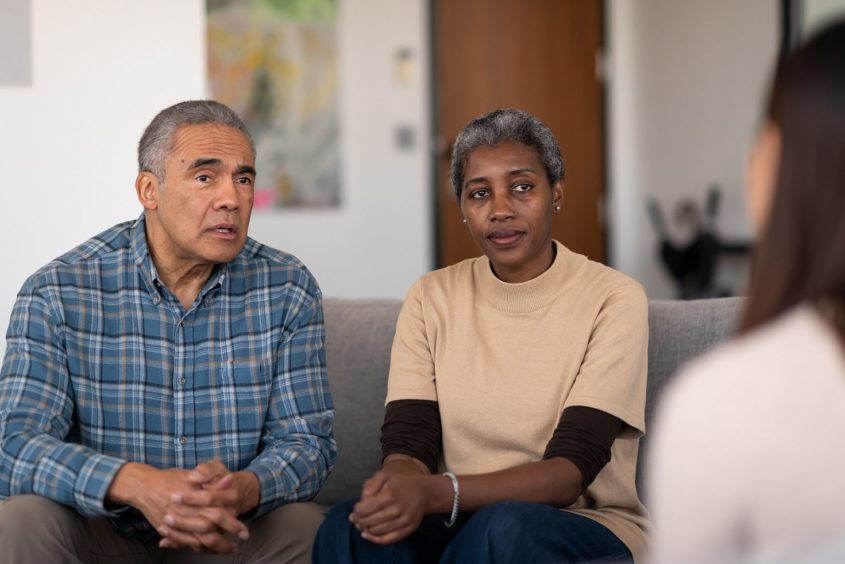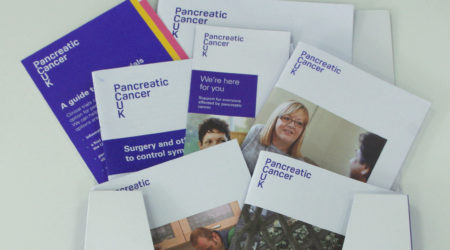
Just diagnosed with pancreatic cancer?
This information is for anyone recently diagnosed with pancreatic cancer. Family and friends may also find it useful.
Being diagnosed with pancreatic cancer can feel overwhelming.
You have probably got lots of questions and worries, and it can be hard to take everything in. This section gives you key information about pancreatic cancer and your diagnosis.

What can I do?
- Ask your doctor or nurse any questions you have. We have questions throughout our information that you might find helpful.
- Contact our specialist nurses on our Support Line with any questions about your diagnosis.
- Find out as much as you want to know. We have lots of information for people recently diagnosed with pancreatic cancer.
- Talk to family and friends about how you are feeling. Sometimes just talking can help you make sense of things.
- Read more about the support we can provide.
- Read more about dealing with the emotional impact of being diagnosed with pancreatic cancer.
Get support
You and your family can also get support from our specialist nurses on our free Support Line. You can contact them about anything – managing symptoms, questions about your diagnosis, treatment options or just to talk about how you’re really feeling.

Get tailored information about your diagnosis
If you or a loved one have just been diagnosed with pancreatic cancer, our tailored emails can help you get the information and support you need.

Whether you can have surgery and the stage of your cancer
You may have been told whether or not you can have surgery to remove the cancer. Or your doctor may tell you the stage of your cancer. This explains how big the cancer is and if it has spread. Your doctor will explain what this means and how it affects your treatment options. Some doctors may focus on whether you can have surgery and don’t tell you the stage. If you haven’t been told the stage but would like to know this, ask your doctor.
Your test results should be sent to your GP, and you may be sent a copy of the letter. This might include the stage of your cancer. If there’s anything in the letter that’s not clear, ask your GP or medical team to explain it. Our specialist nurses can also help explain things.
If you can have surgery to remove the cancer
If you have been diagnosed with early or localised pancreatic cancer you may be able to have surgery to remove the cancer.

If you can’t have surgery
If the cancer has spread outside your pancreas, surgery may not be possible. This is called inoperable cancer. You may have been diagnosed with locally advanced or advanced pancreatic cancer.

Stage 1 pancreatic cancer
The cancer is contained inside your pancreas. This is early, localised pancreatic cancer. This is also called operable or resectable cancer because surgery may be possible.

Stage 2 pancreatic cancer
The cancer may have grown larger. It may have spread to a small number of lymph nodes near the pancreas. You might be able to have surgery to remove the cancer, but this depends on how far it has spread.

Stage 3 pancreatic cancer
The cancer has spread outside your pancreas. This is usually locally advanced cancer. But it may occasionally be borderline resectable cancer, which means that the cancer that has grown very close to major blood vessels near the pancreas.

Stage 4 pancreatic cancer
The cancer has spread further to other parts of your body. This is advanced or metastatic cancer. You may be able to have chemotherapy to slow down the growth of the cancer, and treatment to help manage any symptoms.

Published November 2022
To be reviewed November 2025



